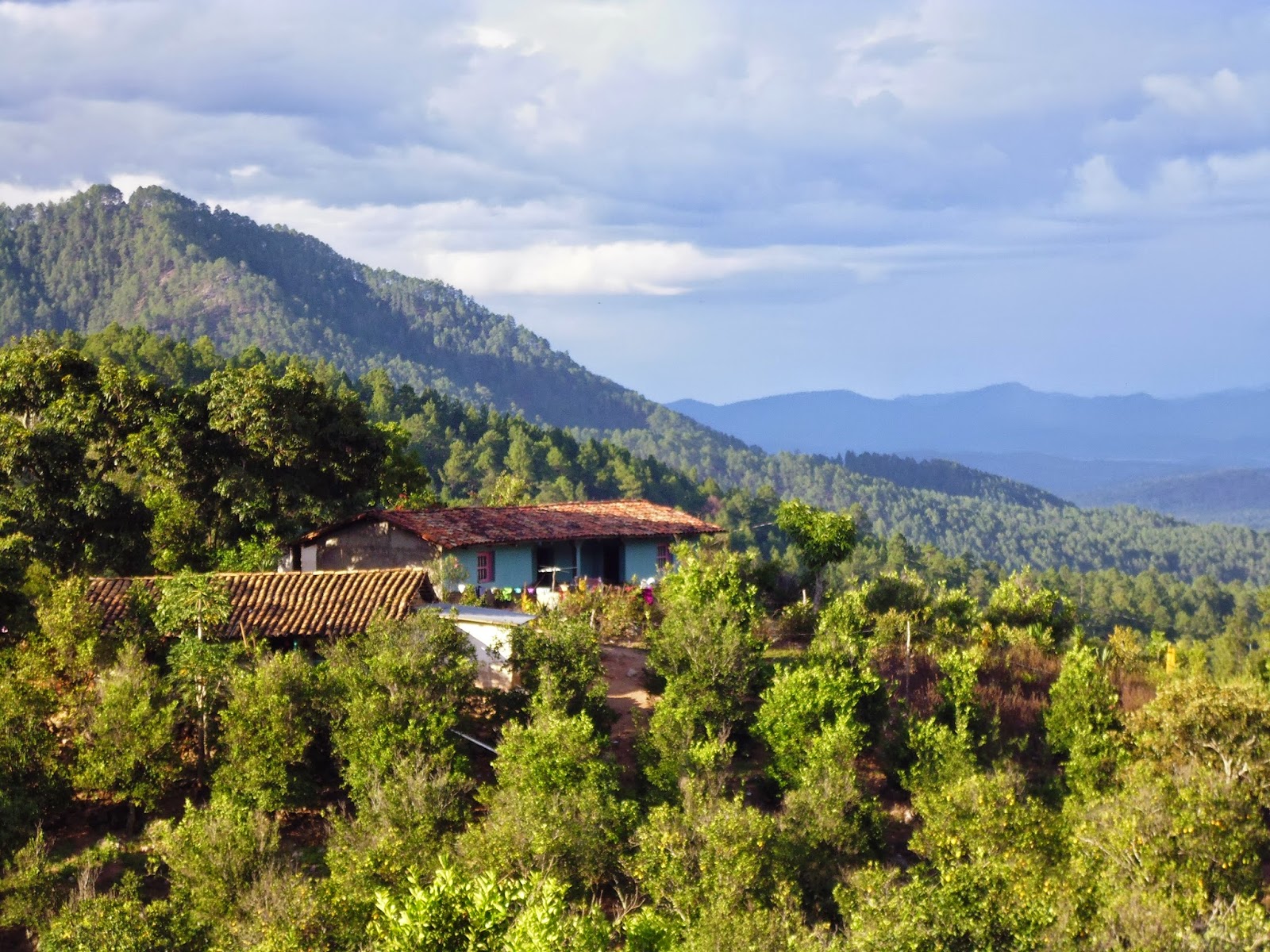This whole western trend toward tiny houses has always made me smirk. Not that its bad -- I am an advocate for downsizing, minimizing, living with less --but it's a bit curious that what we consider a small house, most of the world just considers a regular old home.
Where I lived in Honduras was a 15 minute walk to the nearest village. For some the neighboring village had no appeal. For me and a few other volunteers, walking through the woods past the village football field and along the two lane highway to the pulperia for hot coffee and sweet pan was a much needed, refreshing trip away from my work -- even if I had to walk through the rain to get there.
There's a lot missing from these villages; most lived without access to reliable jobs, heath care or an education beyond a one-room elementary school. But still, walking into town, women hung their laundry, cows passed us on the dirt road, chickens pecked in every backyard, and the dream of my perhaps one day life passed by me on my way to afternoon coffee. Every modest house housed a family, and in the backyard beside the chickens were mangoes trees, coconuts, mandarins, corn stalks growing from a small plot of land. They washed everything by hand, cooked everything by fire. It's a life that deserves no romanticism. It's hard. But walking through when the sun would set, it was also beautiful.
(You know, I don't think there's a more articulate way to sum up my internal thoughts and dilemmas about the rural world than this New Yorker article about a new highway built in India.)
I am now home, reading Mortiz Thomsen's "The Farm on the River of Emeralds". Thomsen was a Peace Corps volunteer in the sixties who wrote about his four years attempting service in an Ecuadorian village in "Living Poor".
I read that book before going to Honduras and accordingly, read his book about living on a farm in Ecuador four years after his Peace Corps stint now that I've returned. I've been going through the last chapter ten pages at time, partly because I can't bear for it to end and partly because it's so emotionally hard that I'm not capable of too much at one time. The last passage I read, I had to put it down and then quickly after, scan the page so I'd never forget it. After four years into farming a piece of land, he started to look at the neighboring land, wondering if purchasing it and starting perfectly anew, moving toward a greater degree of isolation and simplicity, will answer his problems. His final verdict?
"How stupid to think things were different over there," he wrote, "and that its isolation by a band of muddy water might have preserved it from contamination."



No comments:
Post a Comment